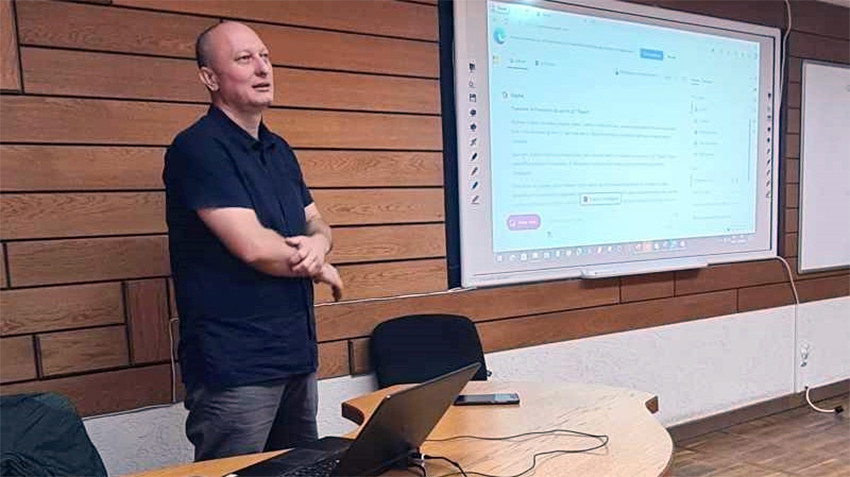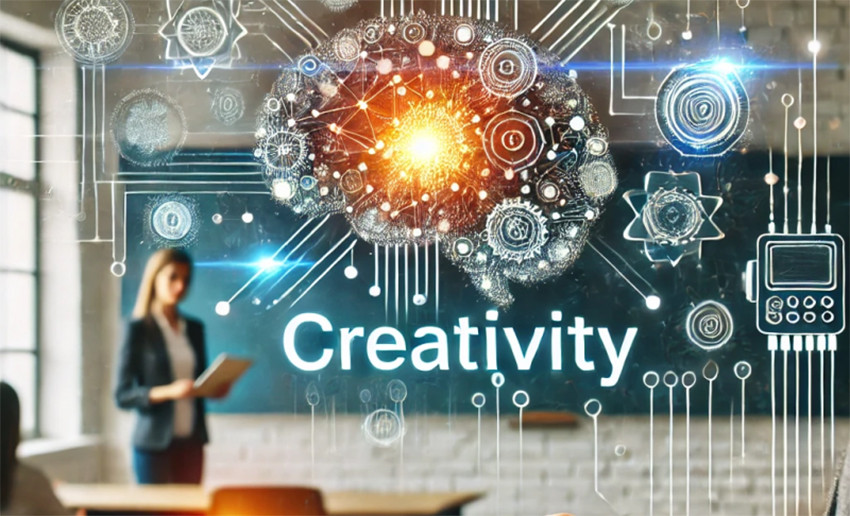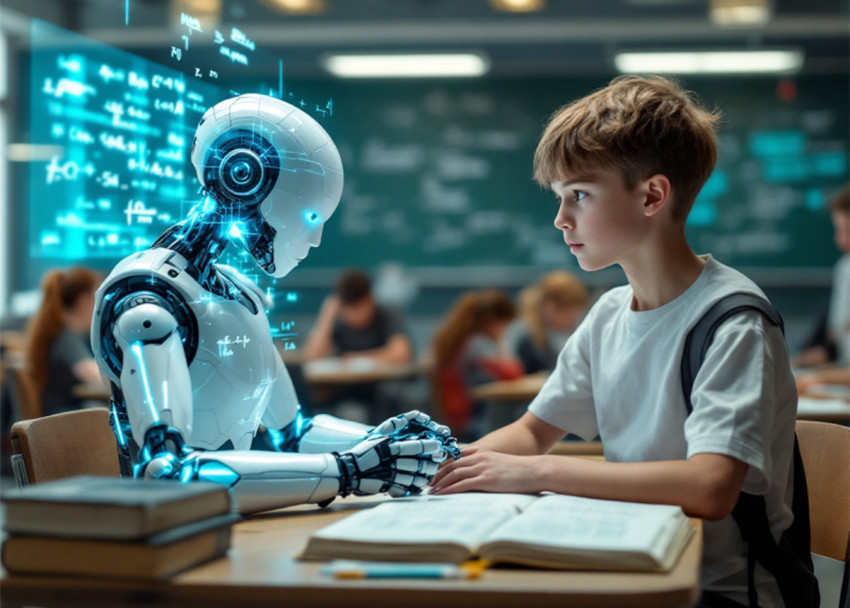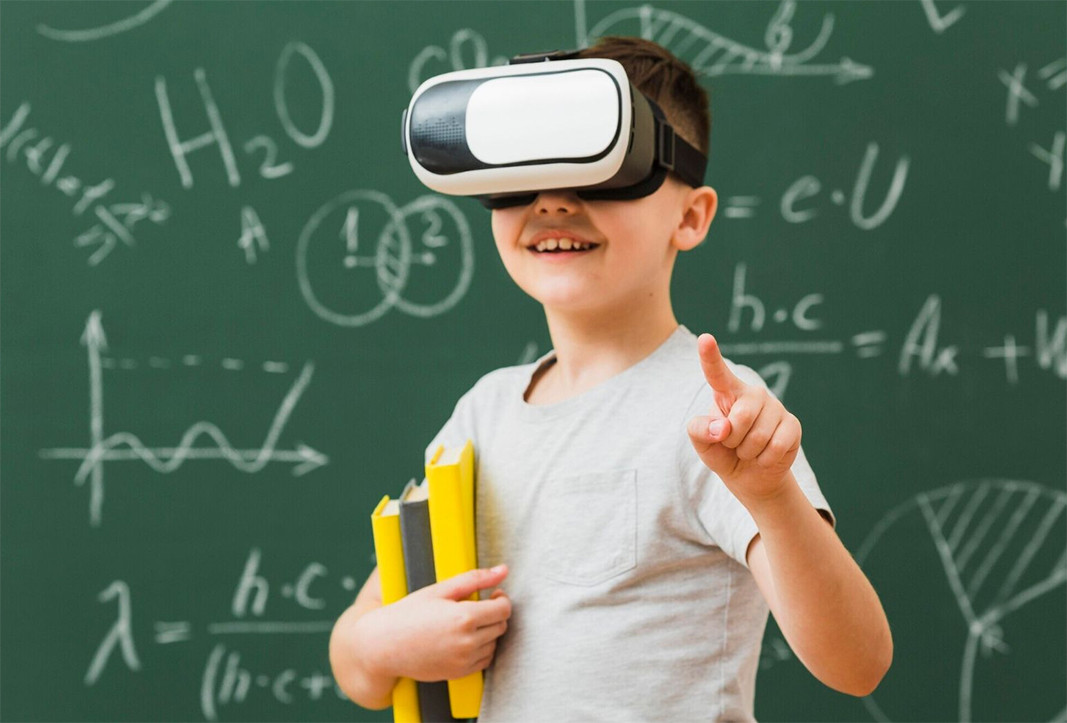People are increasingly freeing up space for technology that they manage and keep under control. Artificial intelligence is quickly settling into this shared space. AI has been entering classrooms in recent years to bring the educational process closer to the generations with whom it coexists in a common technological world.
Artificial intelligence has been present in Bulgarian education for nearly four years, says Borislav Mihaylov, an educational expert at the "Creativity" training center and a lecturer at the "Paisiy Hilendarski" University in Plovdiv. According to him, children use it mostly to learn and sometimes to write homework and essays, while teachers use it to develop lessons. "An interesting point is that we can incorporate data about students and create personalized materials that meet their requirements, level, needs," the AI specialist adds.

The educational center has been developing its own systems with the help of ChatGPT, as well as artificial intelligence models designed for the education in this country.
"We have a model – a creative assistant for kindergartens, which creates fairy tales, stories, songs and adapts them for individual children,” Boris Mihaylov says. “Based on these models, we can create fairy tales that are much different in comparison to the traditional ones and use them to bring out various qualities in children, so that they fantasize in a given direction and break standard views."

Similar models have also been created for the initial stage of education and for older students, as they are trained to cope well with subjects such as Bulgarian language and literature, history, economics, entrepreneurship and other more narrowly specialized disciplines.
"Different pedagogical schools see the development of the discipline in different directions and we come to the conclusion that the current educational system is not effective for generations that have grown up with the digital world,” Boris Mihaylov says. "That is why in a few years there will be more attention paid to the so-called contextual education, which is being introduced with artificial intelligence. With the help of cross-disciplinary approaches, we can create real situations in which children can feel like in real life and solve problems in the context of what they are studying. Bulgaria is among the pioneers who are starting to introduce this educational model."

Boris Mihaylov points out that teachers in Bulgarian schools abroad have been using artificial intelligence since 2021. At a special conference in London (April 4-5), the expert will present to them the topic of innovative teaching and learning.

Like everything in our life, artificial intelligence has two sides. What should those who use it in the field of education be careful about?
"The first danger is reduction of critical thinking, as very often the things that the artificial intelligence says are considered absolutely true,” Boris Mihaylov says. “Children communicating with artificial intelligence most often assume that a person is sitting opposite them. And the third thing is that they begin to become attached to AI. It is very important to pay more attention to digital psychology so that adolescents have a clear idea that they are not communicating with a real person."

However, who should intervene so that children can keep their ability for critical thinking and creativity?
"I really want to point to the teachers, but in fact the main role is of society, of journalists, of the entire system and, above all, of parents," Boris Mihaylov says.

"We need to point out something important,” the expert continues, commenting on the fact that students often write their homework with the help of artificial intelligence. “Our children are from Gen Alpha and Gen Z, they were born with technology, for them it is not just some tool, but a way of life. And here the question is: ‘If a machine does something well, shouldn't we teach the child to work with it, instead of forbidding its use?’. The problem is how to include new technologies in the educational process."

Boris Mihaylov asked the artificial intelligence all these questions and the result was an almost complete coincidence of points of view. "The most important thing that AI provided as a summary is that it is good to use it as a tool, but not as a substitute for education". According to the expert, the best option is to combine traditional methods with new technologies - and yet the main thing is to encourage critical thinking and creative problem-solving.
Publication in English: Al. Markov
Photos: cpocreativity.com
On the night of Saturday to Sunday (30 March), at 3am, we need to move the clock forward one hour - to 4am. This will give us an hour less sleep on that particular night, but in the long run we will be able to make better use of daylight, which should..
Bulgaria has joined a multinational nomination for accession to the element "Pasture traditions", inscribed on the UNESCO List of Intangible Cultural Heritage. The event was marked on March 28 with the official signing of the nomination by the..
The international business exhibition Architectural Building Week 2025 starts today at the Inter Expo Centre in Sofia and runs until 29 March. It is being held alongside the Green Energy and Building Information Modelling (BIM) forums. This year's..
Today, 2 April, on Autism Awareness Day, the Burgas Bridge will be illuminated in blue as a sign of empathy, the Municipality of Burgas announced...

+359 2 9336 661
